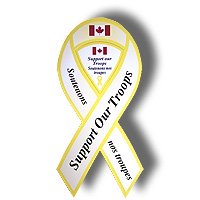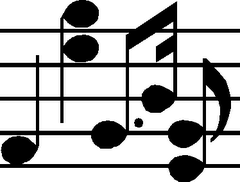Canadian Soldiers Walk Fine Line on Afghanistan's Poppy Crops
Nearly a century since the humble poppy first blossomed as an enduring symbol of military sacrifice, Canada's soldiers find themselves shoulder-deep in flowers of a very different colour, striking a delicate diplomatic balance between policy and practicality.
The opium poppies that blanket Afghanistan in spring are far different and a great deal more treacherous than the red Remembrance Day variety that bloom on city streets in November.
As Canadian soldiers patrol the vibrant pink opium fields of southern Afghanistan, they walk a narrow bridge of neutral territory that divides the Afghan government's U.S.-backed program to rid the country of poppies from the interests of dirt-poor growers whose help keeps coalition soldiers alive.
"We walk through fields all the time; every time we were patrolling through the towns, we'd walk through all kinds of (opium) poppy fields, everywhere," said Maj. Steve Graham, a squadron commander with the Royal Canadian Dragoons, just back from two months in the volatile Zhari district west of Kandahar.
Graham and his soldiers took pains to distance themselves from the poppy-eradication teams of President Hamid Karzai, even as they worked alongside members of the Afghan National Police - the same agency that provides security for the crews tasked with destroying the crops.
"Our line is we have nothing to do with poppy eradication," Graham said Tuesday in an interview. "But even though we want nothing to do with it and we stay away from it, it can't help but have an impact on us."
For Graham, it's simple self-preservation. Local farmers who depend on the poppy crop for their livelihood are a critical source of invaluable intelligence, such as the movements of local Taliban insurgents and where improvised explosive devices - or IEDs - are planted.
"They were telling me where the IEDs were, they were telling me when guys were moving through there that they didn't recognize, and they were pointing out a lot of good information for us," Graham said.
"Anything that damages that relationship is detrimental to what we're doing, and there's no doubt that poppy eradication damages that relationship."
It gets even stickier when poppy-eradication teams come under attack from the Taliban. No less an authority than Brig.-Gen. Tim Grant, the commander of Canadian forces in Afghanistan, decides whether to intervene if a request for help comes in, Graham said.
For the Canadian government and NATO, the equilibrium is more subtle.
Though Canadian soldiers play no role in poppy eradication, Canada supports the program as one of the pillars of the Afghan national drug-control strategy, said Gavin Buchan, the political director of the provincial reconstruction base in Kandahar.
Other pillars of the strategy include programs to encourage farmers to grow different commodity crops, developing alternative sources of income for locals, treatment for opium addicts and improved interdiction and law enforcement.
Perhaps the most compelling anti-poppy message is written on the faces of the local Afghans who are addicted to the drugs that make the flower so valuable and controversial.
Khan Mohammad, sitting crouched over his pipe in a Kandahar street, said he discovered opium 10 years ago when a friend introduced him to it, and hasn't been able to stop using it since.
"Slowly and gradually my condition was getting worse day by day," said Mohammad, whose wife kicked him out of the house. He hasn't seen his six children in years.
"I miss my children a lot. And I feel hopelessness and helplessness," he said. "While begging, I earn some money and I buy (drugs). I don't have any future; I am just waiting for my death to get rid of this life."
Messages like Mohammad's might ultimately prove to be the most powerful weapon in Afghanistan's nascent war on drugs, said Buchan.
"The key point of it is to explain to the farmers why it is they should not grow poppies," he said.
"They understand that it destroys the lives of those who use (opium), oftentimes including those in their own community."
Last week, NATO withdrew a radio ad paid for by the International Security Assistance Force that said coalition soldiers would not destroy opium fields. The ad aired in Helmand province, the largest opium-producing region in the world.
It was pulled after complaints from Afghanistan's Ministry for Counter Narcotics that it condoned the cultivation of the illicit crop.
One farmer in Kandahar, who gave his name only as Abdullah, said he earns about US$3,330 each season from just two hectares of land which produces 45 kilograms of poppies a year. With wheat, Abdullah said he would earn only US$1,000 during the same six-month season.
"I can feed my family very well by poppy cultivation, not by cultivating wheat or other vegetables - and several other families are being fed while working in our field in harvesting season," he said.
"It is the first and last way where people can earn a lot of money."
Canada's approach to the poppy problem involves helping local farmers develop alternative crop options, including a concerted effort to repair and improve irrigation systems.
Poppies are prevalent, at least in part, because they're not as dependent on water as other crops, making them easier to grow in Afghanistan's arid plains, Buchan said.
"There's really great potential in Kandahar; it's a place that gets sunshine nine months of the year," he said.
"You can pretty much grow anything as long as you've got the water. If you can improve their access to water, that makes it more viable to rely on commodity crops."
Weekly Poppy Report































No comments:
Post a Comment